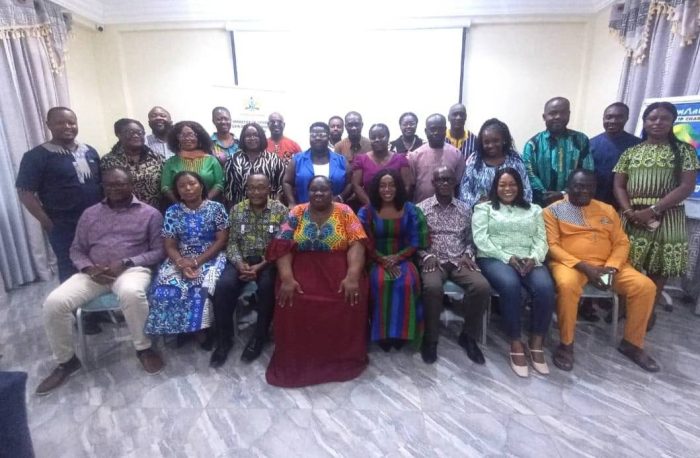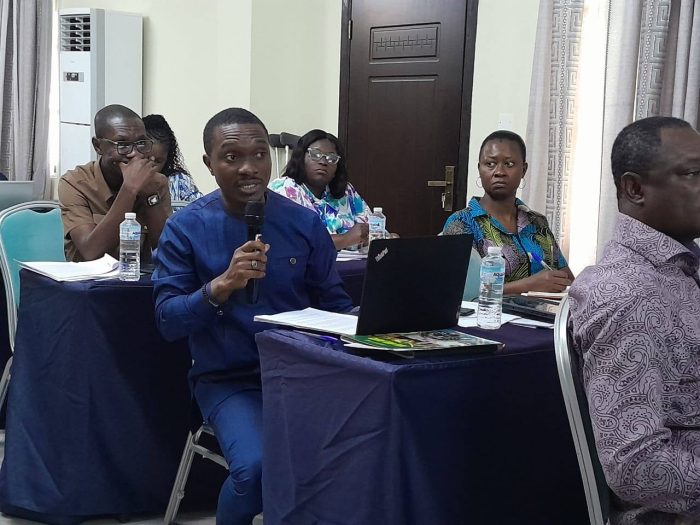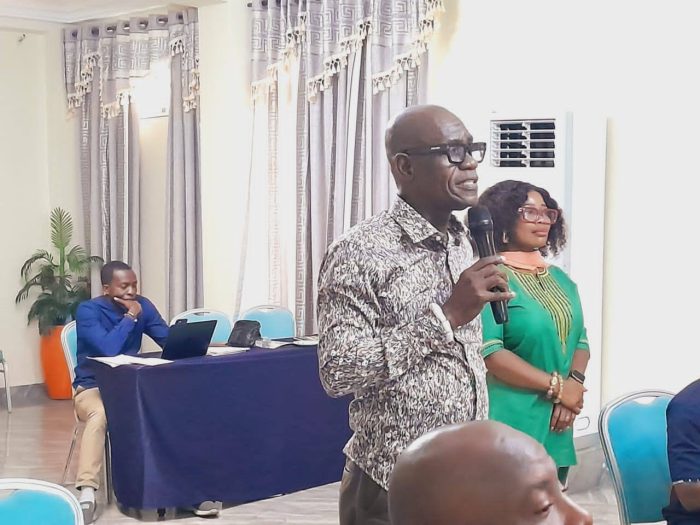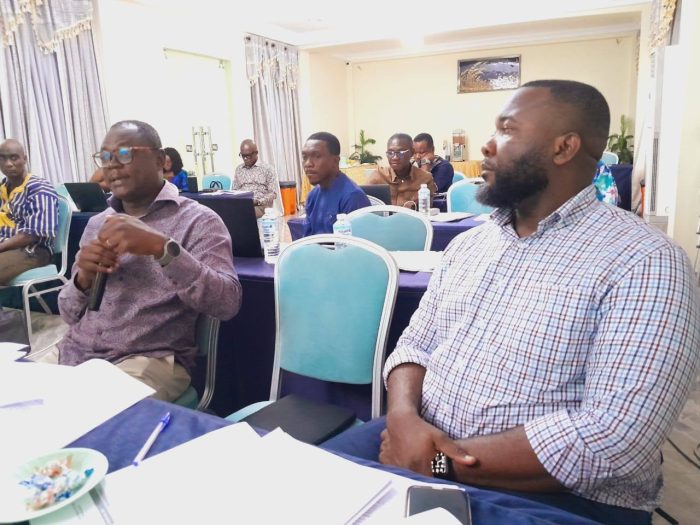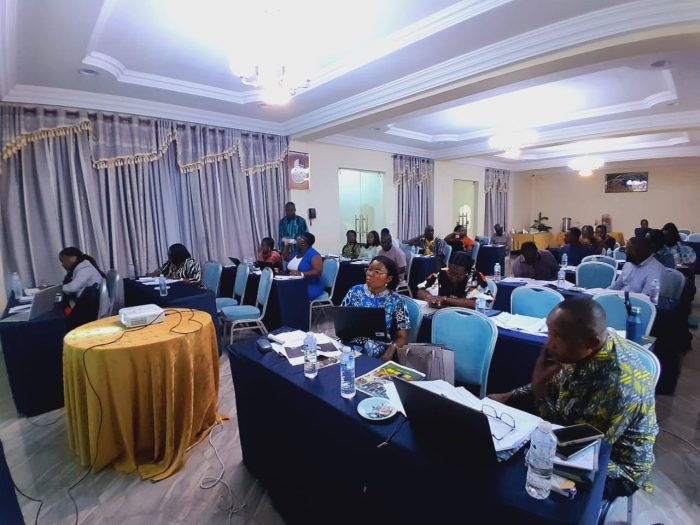TECHNICAL WORKING SESSION TO DEVELOP THE FIRST DRAFT OF THE NATIONAL SOCIAL PROTECTION SHOCK RESPONSIVE STRATEGY.
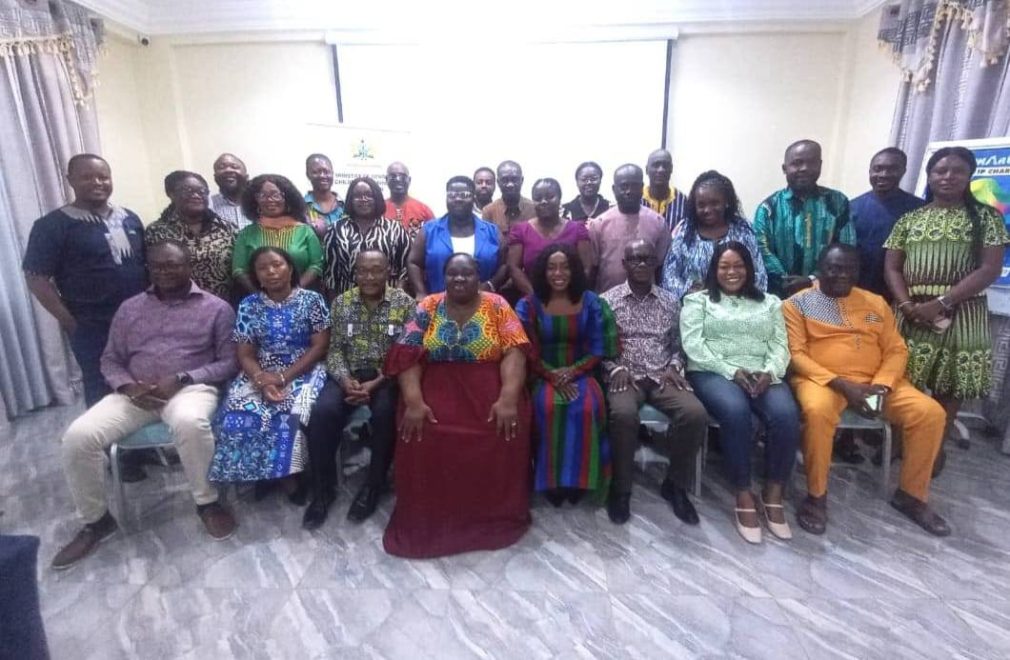
February 10, 2025 11:37 am
At Koforidua in the Eastern Region, the Social Protection Directorate of the Ministry of Gender, Children, and Social Protection held a four-day technical working session aimed at developing the first draft of the National Social Protection Shock Responsive Strategy (NSPSRS), its implementation plan, and Standard Operating Procedures (SOPs). The session took place from Tuesday, 4th to Friday, 7th February 2025.
Among other objectives, the meeting sought to:
Review and discuss the progress made on the zero draft.
Integrate gender and disability perspectives into the strategy.
Refine the contextual analysis and key action areas.
Map out and develop a comprehensive risk profile for Ghana and integrate it into the strategy.
Discuss and agree on a template, format, and content of the Standard Operating Procedures (SOPs) for the NSPSRS.
The session provided an opportunity for stakeholders to contribute expertise, share insights, and refine the draft strategy to ensure it effectively addresses vulnerabilities during shocks such as economic crises, natural disasters, and health emergencies.
The Chief Director of the Ministry, Dr. Afisah Zakariah, speaking through the Director of the Social Protection Directorate, Madam Francisca Abena Atuluk, expressed her gratitude to stakeholders for taking time out of their busy schedules to participate in the meeting.
She provided an extensive overview of the session, highlighting the progress made in each thematic area. She also reminded participants to incorporate their inputs effectively to ensure the draft document is ready for submission to the Minister on time.
Madam Francisca Atuluk emphasized the urgency of developing a robust strategy to address shocks that impact the population, particularly the vulnerable, persons with disabilities, and marginalized groups.
She urged stakeholders to share their reflections on the working session, underscoring the importance of collaboration and knowledge-sharing in producing an effective draft of the National Social Protection Shock Responsive Strategy to guide and support affected persons and households.
The meeting concluded with a commitment from stakeholders to continue supporting the development and operationalization of the NSPSRS.
Presentations covered key areas such as an overview of the zero draft of the NSPSRS, the strategy’s vision, integration of gender, disability, and inclusivity, governance arrangements, social accountability, and case management, among others.
